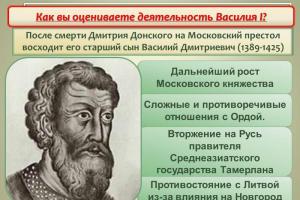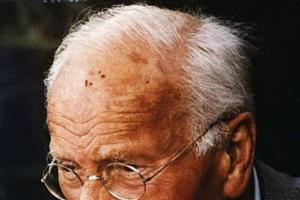Love to motherland
1) Ardent love for the Motherland, We feel pride in its beauty in the works of the classics.
The theme of heroic feat in the fight against the enemies of the Motherland is also heard in M. Yu. Lermontov’s poem “Borodino”, dedicated to one of the glorious pages of the historical past of our country.
2) The theme of the Motherland is raised in the works of S. Yesenin. Whatever Yesenin wrote about: about experiences, about historical turning points, about the fate of Russia in the “harsh, formidable years” - every Yesenin image and line is warmed by a feeling of boundless love for the homeland: But most of all. Love for the native land
3) Famous writer told the story of the Decembrist Sukhinov, who, after the defeat of the uprising, was able to hide from police bloodhounds and, after painful wanderings, finally made it to the border. Another minute - and he will find freedom. But the fugitive looked at the field, the forest, the sky and realized that he could not live in a foreign land, far from his homeland. He surrendered to the police, he was shackled and sent to hard labor.
4) Outstanding Russian singer Fyodor Chaliapin, forced to leave Russia, always carried a box with him. No one had any idea what was in it. Only many years later did relatives learn that Chaliapin kept a handful of his native land in this box. No wonder they say: the native land is sweet in a handful. Obviously, the great singer, who passionately loved his homeland, needed to feel the closeness and warmth of his native land.
5) The Nazis, having occupied France, offered General Denikin, who fought against the Red Army during the Civil War, to cooperate with them in the fight against the Soviet Union. But the general responded with a sharp refusal, because his homeland was more valuable to him than political differences.
6) African slaves, taken to America, yearned for their native land. In despair, they killed themselves, hoping that the soul, having thrown off the body, could fly home like a bird.
7) The most terrible Punishment in ancient times was considered to be the expulsion of a person from a tribe, city or country. Outside your home there is a foreign land: a foreign land, a foreign sky, a foreign language... There you are completely alone, there you are nobody, a creature without rights and without a name. That is why leaving one’s homeland meant losing everything for a person.
8) To an outstanding Russian hockey player V. Tretyak was offered to move to Canada. They promised to buy him a house and pay him a higher salary. Tretyak pointed to the sky and earth and asked: “Will you buy this for me too?” The famous athlete's answer confused everyone, and no one else returned to this proposal.
9) When in the middle In the 19th century, an English squadron besieged the capital of Turkey, Istanbul, and the entire population stood up to defend their city. Townspeople destroyed their own houses if they prevented Turkish cannons from conducting aimed fire at enemy ships.
10) One day the wind decided to fell the mighty oak tree that grew on the hill. But the oak only bent under the blows of the wind. Then the wind asked the majestic oak tree: “Why can’t I defeat you?”
11) Oak answered that it’s not the trunk that’s holding him up. Its strength lies in the fact that it is rooted in the ground and clings to it with its roots. This simple story expresses the idea that love for the homeland, a deep connection with national history, with the cultural experience of ancestors makes a people invincible.
12) When over England When the threat of a terrible and devastating war with Spain loomed, the entire population, hitherto torn apart by enmity, rallied around its queen. Merchants and nobles equipped the army with their own money, and people of ordinary rank enlisted in the militia. Even the pirates remembered their homeland and brought their ships to save it from the enemy. And the “invincible armada” of the Spaniards was defeated.
13) Turks during During their military campaigns they captured boys and young men as prisoners. Children were forcibly converted to Islam and turned into warriors called Janissaries. The Turks hoped that the new warriors, deprived of spiritual roots, having forgotten their homeland, brought up in fear and obedience, would become a reliable stronghold of the state.
The problem of spirituality, a spiritual person is one of the eternal problems of Russian and world literature
Ivan Alekseevich Bunin(1870 -- 1953) - Russian writer and poet, first winner of the Nobel Prize in Literature
In the story "Mr. from San Francisco" Bunin criticizes bourgeois reality. This story is symbolic already by its title. This symbolism is embodied in the image of the main character, who is a collective image of the American bourgeois, a man without a name, called by the author simply a gentleman from San Francisco. The hero’s lack of a name is a symbol of his inner lack of spirituality and emptiness. The thought arises that the hero does not live in the full sense of the word, but only exists physiologically. He understands only the material side of life. This idea is emphasized by the symbolic composition of this story, its symmetry. While “he was quite generous on the way and therefore fully believed in the care of all those who fed and watered him, served him from morning to evening, preventing his slightest desire, guarding his purity and peace...”.
And after sudden “death,” the body of the dead old man from San Francisco returned home, to his grave, to the shores of the New World. Having experienced a lot of humiliation, a lot of human inattention, having wandered from one port shed to another for a week, it finally ended up again on the same famous ship on which so recently, with such honor, it was transported to the Old World.” The ship "Atlantis" sails in the opposite direction, only carrying the rich man already in a soda box, "but now hiding him from the living - they lowered him deep into the black hold." And on the ship there is still the same luxury, prosperity, balls, music, a fake couple playing at love.
It turns out that everything he has accumulated has no meaning in front of that eternal law to which everyone, without exception, is subject. It is obvious that the meaning of life is not in the acquisition of wealth, but in something that cannot be assessed in monetary terms - worldly wisdom, kindness, spirituality.
Spirituality is not equal to education and intelligence and does not depend on it.
Alexander Isaevich (Isaakievich) Solzhenitsyn(1918-- 2008) - Soviet and Russian writer, playwright, publicist, poet, public and political figure, who lived and worked in the USSR, Switzerland, USA and Russia. Winner of the Nobel Prize in Literature (1970). A dissident who for several decades (1960s - 1980s) actively opposed communist ideas, the political system of the USSR and the policies of its authorities.
A. Solzhenitsyn showed this well in the story "Matryonin's Dvor". Everyone mercilessly took advantage of Matryona’s kindness and simplicity - and unanimously condemned her for it. Matryona, apart from her kindness and conscience, did not accumulate any other wealth. She is used to living according to the laws of humanity, respect and honesty. And only death revealed the majestic and tragic image of Matryona to people. The narrator bows his head before a man of great selfless soul, but absolutely unrequited and defenseless. With the departure of Matryona, something valuable and important leaves life...
Of course, the germs of spirituality are inherent in every person. And its development depends on upbringing, and on the circumstances in which a person lives, on his environment. However, self-education, our work on ourselves, plays a decisive role. Our ability to look into ourselves, question our conscience and not be disingenuous in front of ourselves.
Mikhail Afanasyevich Bulgakov(1891--- 1940) - Russian writer, playwright, theater director and actor. Written in 1925, first published in 1968. The story was first published in the USSR in 1987
The problem of lack of spirituality in the story M. A. Bulgakova “Heart of a Dog”
Mikhail Afanasyevich shows in the story that humanity turns out to be powerless in the fight against the lack of spirituality that arises in people. At the center of it is the incredible case of a dog turning into a human. The fantastic plot is based on the depiction of the experiment of the brilliant medical scientist Preobrazhensky. Having transplanted the seminal glands and pituitary gland of the brain of the thief and drunkard Klim Chugunkin into the dog, Preobrazhensky, to everyone’s amazement, gets a man out of the dog.
Homeless Sharik turns into Polygraph Poligrafovich Sharikov. However, he still has the dog habits and bad habits of Klim Chugunkin. The professor, together with Dr. Bormenthal, is trying to educate him, but all efforts are in vain. Therefore, the professor returns the dog to its original state. The fantastic incident ends idyllically: Preobrazhensky goes about his direct business, and the subdued dog lies on the carpet and indulges in sweet thoughts.
Bulgakov expands the biography of Sharikov to the level of social generalization. The writer gives a picture of modern reality, revealing its imperfect structure. This is the story not only of Sharikov’s transformations, but, above all, the story of a society developing according to absurd, irrational laws. If the fantastic plan of the story is completed in plot, then the moral and philosophical one remains open: the Sharikovs continue to breed, multiply and establish themselves in life, which means that the “monstrous history” of society continues. It is precisely such people who know neither pity, nor sorrow, nor sympathy. They are uncultured and stupid. They have dog hearts from birth, although not all dogs have the same hearts.
Outwardly, the Sharikovs are no different from people, but they are always among us. Their inhuman nature is just waiting to emerge. And then the judge, in the interests of his career and the implementation of the plan to solve crimes, condemns the innocent, the doctor turns away from the patient, the mother abandons her child, various officials, for whom bribes have become the order of the day, drop their mask and show their true essence. Everything that is lofty and sacred turns into its opposite, because the inhuman has awakened in these people. When they come to power, they try to dehumanize everyone around them, because non-humans are easier to control, and for them all human feelings are replaced by the instinct of self-preservation.
In our country, after the revolution, all conditions were created for the appearance of a huge number of balls with dog hearts. The totalitarian system greatly contributes to this. Probably due to the fact that these monsters have penetrated into all areas of life, Russia is still going through difficult times
Boris Vasiliev's story "Don't shoot white swans"
Boris Vasiliev tells us about the lack of spirituality, indifference and cruelty of people in the story “Don’t Shoot White Swans.” Tourists burned a huge anthill so as not to feel inconvenience from it, “they watched the giant structure, the patient work of millions of tiny creatures, melt before their eyes.” They looked at the fireworks with admiration and exclaimed: “Victory salute! Man is the king of nature."
Winter evening. Highway. Comfortable car. It is warm and cozy, with music playing, occasionally interrupted by the announcer's voice. Two happy, intelligent couples are going to the theater - a meeting with the beautiful lies ahead. Don't let this wonderful moment of life get away! And suddenly the headlights pick out in the darkness, right on the road, the figure of a woman “with a child wrapped in a blanket.” "Crazy!" - the driver screams. And that's it - darkness! There is no former feeling of happiness from the fact that your loved one is sitting next to you, that very soon you will find yourself in a soft chair in the stalls and will be spellbound to watch the performance.
It would seem a trivial situation: they refused to give a ride to a woman with a child. Where? For what? And there is no space in the car. However, the evening is hopelessly ruined. A “déjà vu” situation, as if it had already happened, the heroine of A. Mass’s story flashes through her mind. Of course, it happened - and more than once. Indifference to the misfortune of others, detachment, isolation from everyone and everything - phenomena are not so rare in our society. It is this problem that writer Anna Mass raises in one of her stories in the “Vakhtangov Children” series. In this situation, she is an eyewitness to what happened on the road. After all, that woman needed help, otherwise she would not have thrown herself under the wheels of the car. Most likely, she had a sick child; he had to be taken to the nearest hospital. But their own interests turned out to be higher than the manifestation of mercy. And how disgusting it is to feel powerless in such a situation, you can only imagine yourself in the place of this woman, when “people happy with themselves in comfortable cars rush past.” I think the pangs of conscience will torment the soul of the heroine of this story for a long time: “I was silent and hated myself for this silence.”
“People satisfied with themselves”, accustomed to comfort, people with petty proprietary interests are the same Chekhov's heroes, "people in cases." This is Doctor Startsev in “Ionych”, and teacher Belikov in “The Man in a Case”. Let us remember how plump, red Dmitry Ionych Startsev rides “in a troika with bells”, and his coachman Panteleimon, “also plump and red,” shouts: "Keep it up!" “Keep the law” - this is, after all, detachment from human troubles and problems. There should be no obstacles on their prosperous path of life. And in Belikov’s “no matter what happens,” we hear the sharp exclamation of Lyudmila Mikhailovna, a character in the same story by A. Mass: “What if this child is contagious? We also have children, by the way!” The spiritual impoverishment of these heroes is obvious. And they are not intellectuals, but simply philistines, ordinary people who imagine themselves to be “masters of life.”
What does it mean to be a real writer? K. G. Paustovsky invites us to think about this question.
Lazar Borisovich, the hero of Paustovsky’s memoir, is a wise old pharmacist who helps people cope with both physical and moral ailments. His advice helps to get out of a difficult life situation and decide on the choice of path. It was the narrator who was helped by Lazar Borisovich’s advice to see the purpose of a real writer: “he must know a lot, remember everything, work like a sorcerer.”
A wise hint helped the narrator take the right path: to go into the people, to “that worldly school that no books can replace.”
I cannot but agree with the writer’s opinion, since a lazy, stupid person who does not understand life will not make a writer.
So in the work “The Master and Margarita” the main character was really a real writer, understanding life and all its manifestations, that he even “was able to guess” what happened two thousand years ago with Pontius Pilate.
Russian writers were real workers who created unique literature, one of them was Dostoevsky. He understood life like no one else, was a psychologist, a philosopher, and only a real writer like him could write works known to the whole world: “Crime and Punishment”, “The Idiot” and others.
In conclusion, I want to say that only those people who have gone through all life’s difficulties, stopped at nothing and strived to bring their creative ideas to life become writers.
Updated: 2017-04-09
Attention!
Thank you for your attention. Useful material on the topic
If you notice an error or typo, highlight the text and click Ctrl+Enter.
By doing so, you will provide invaluable benefit to the project and other readers.
The essay requirements for the Unified State Exam have changed several times in recent years, but one thing has remained unchanged - the need to prove the correctness of your judgments. And for this you need to choose the right arguments.
The problem of repentance will interest us first of all. In this article we will present several options for arguments selected from the school reading list. From it you can choose those that are best suited for your work.
What are arguments for?
When writing an essay for part C, you need to express your opinion regarding the given topic. But your thesis needs evidence. That is, it is necessary not only to express your position, but also to confirm it.
Very often the problem of repentance comes up in exams; it is quite easy to find arguments for it if the student is well acquainted with the school literature curriculum. However, not everyone manages to immediately remember the desired work, so it is better to select several arguments in advance on the most common topics.
What are the arguments?
In order to fully reveal the problem of repentance, arguments must be selected based on the basic requirements of the Unified State Exam in the Russian language. According to them, all evidence is divided into three types:
- Personal experience, that is, facts taken from your life. They do not have to be reliable, since no one will check whether this actually happened.
- Information that the student received from the school curriculum. For example, from geography, history, etc. lessons.
- Literary arguments that will interest us in the first place. This is the reading experience that the examinee must acquire during training.
Arguments from literature

So, we are interested in the problem of repentance. Arguments from literature will be necessary if you want to get a high score for your essay. At the same time, when selecting arguments, you need to give priority attention to those works that are included in the school curriculum or are considered classics. You should not take texts from little-known authors or popular literature (fantasy, detective stories, etc.), as they may be unfamiliar to the inspectors. Therefore, you need to refresh your memory in advance of the main works that were studied during your school years. Usually in one novel or story you can find examples on almost all topics found in the Unified State Exam. The best option would be to immediately select several works that are familiar to you. So, let's look at the classics that raise the issue of repentance.
"The Captain's Daughter" (Pushkin)
The problem of repentance is very common in Russian literature. Therefore, it is quite easy to select arguments. Let's start with our most famous writer A.S. Pushkin and his novel “The Captain's Daughter”.
At the center of the work is the love of the protagonist Peter Grinev. This feeling is broad and comprehensive, like life. What interests us about this feeling is that it was thanks to him that the hero realized the evil that he had caused to his loved ones, realized his mistakes and was able to repent. Thanks to the fact that Grinev reconsidered his views on life and attitude towards others, he was able to change the future for himself and his beloved.
Thanks to repentance, his best qualities appeared in Peter - generosity, honesty, selflessness, courage, etc. We can say that it changed him and made him a different person.

"Sotnik" (Bykov)
Now let's talk about Bykov's work, which presents a completely different side of the problem of repentance. Arguments from the literature can be different, and you need to choose them depending on your statement, so it’s worth stocking up on a variety of examples.
Thus, the theme of repentance in “The Sotnik” is not at all similar to Pushkin’s. First of all, because the characters themselves are different. Partisan Rybak is captured and in order to survive, he needs to hand over a comrade to the Germans. And he commits this act. But years pass, and the thought of betrayal does not leave him. Repentance overtakes him too late, this feeling can no longer correct anything. Moreover, it does not allow the Fisherman to live in peace.
In this work, repentance did not become an opportunity for the hero to get out of the vicious circle and get rid of suffering. Bykov did not consider Rybak worthy of forgiveness. On the other hand, a person must answer for such crimes throughout his life, since he betrayed not only his friend, but also himself and his loved ones.
“Dark Alleys” (Bunin)
The problem of repentance may appear in a different light. Arguments for an essay on the Unified State Exam should be varied, so let’s take Bunin’s story “Dark Alleys” as an example. In this work, the hero did not have enough strength to admit his mistakes and repent, but retribution overtook him. Once in his youth, Nikolai seduced and abandoned a girl who sincerely loved him. Time passed, but she could not forget her first love, so she refused the advances of other men and preferred solitude. But Nikolai did not find happiness either. Life severely punished him for his crime. The hero's wife constantly cheats on him, and his son has become a real scoundrel. However, all this does not lead him to thoughts of repentance. Here repentance appears before the reader as an act that requires incredible spiritual effort and courage, which not everyone can find within themselves. It is for indecision and lack of will that Nikolai pays.

As an argument, the example from “Dark Alleys” is suitable only for those who in their thesis addressed the problem of retribution and retribution for those who did not repent of their atrocities. Only then will mentioning this work be appropriate.
"Boris Godunov" (Pushkin)
Now let's talk about the problem of delayed repentance. The arguments for this topic will be slightly different, since we will only be interested in one aspect of repentance. So, this problem is perfectly revealed in Pushkin’s tragedy “Boris Godunov”. This example is not only literary, but also partly historical, since the writer turns to the description of epoch-making events that took place in our country.
In "Boris Godunov" the problem of late repentance is very clearly presented. Arguments for written work on this topic must be selected taking into account Pushkin’s tragedy. In the center of the work is the story of Godunov, who ascended the royal throne. However, he had to pay a terrible price for power - to kill the baby, the real heir, Tsarevich Dmitry. Several years have passed, and now the time has come to repent. The hero is no longer able to correct what he has done; he can only suffer and suffer. His conscience haunts him; Godunov begins to see bloody boys everywhere. Those close to the king understand that he is weakening and going crazy. The boyars decide to overthrow the illegal ruler and kill him. Thus, Godunov dies for the same reason as Dmitry. This is the hero’s retribution for a bloody crime, repentance for which overtook him only after several years.
The problem of human repentance. Arguments from Dostoevsky’s novel “Crime and Punishment”

The theme of repentance became the basis for another great work, which gained considerable popularity and love among readers.
The main character commits a crime to prove his inhuman theory about inferior and superior people. Raskolnikov commits murder and begins to suffer, but tries in every possible way to drown out the voice of his conscience. He doesn't want to admit he's wrong. Repentance becomes a turning point in the life and fate of Raskolnikov. It opens the way for him to faith and true values, makes him reconsider his views and realize what is truly precious in this world.
Throughout the entire novel, Dostoevsky led his hero precisely to repentance and recognition of his guilt. This feeling made Raskolnikov's best character traits emerge and made him much more attractive. Although the hero still suffered punishment for his crime, and it turned out to be very severe.
The problem of repentance: arguments from life
Now let's talk about another type of argument. It is very easy to find such examples. Even if nothing like this has ever happened in your life, you can come up with it. However, such arguments are rated lower than literary ones. So, for a good book example you will get 2 points, but for a real example - only one.
Arguments based on personal experience are based on observations of one’s life, the lives of parents, relatives, friends and acquaintances.
Must be remembered

There are several general requirements for any essay, including those that reveal the problem of guilt and remorse. Arguments must necessarily confirm the thesis you have expressed and in no case contradict it. The following points must also be taken into account:
- Reviewers take into account and evaluate only the first two arguments, so there is no point in giving more examples. It is better to pay attention not to quantity, but to quality.
- Remember that literary arguments are scored higher, so try to include at least one such example.
- Do not forget about examples taken from folklore or folk tales. Similar arguments are also taken into account, but are assessed with only one point.
- Remember that all arguments are worth 3 points. Therefore, it is best to follow the following scheme: one example from folklore or personal experience, the second from literature.
Now a few words about how to correctly write a literary argument:
- Be sure to include the author's last name and initials and the full title of the work.
- It is not enough to name the writer and the title; you need to describe the main characters, their words, actions, thoughts, but only those that are related to the topic of the essay and your thesis.
- The approximate amount of text per argument is one or two sentences. But these numbers ultimately depend on the specific topic.
- Start giving examples only after you have expressed your position.
Summing up

Thus, the problem of repentance is widely represented in literature. Therefore, choosing arguments for the Unified State Exam in the Russian language will not be difficult. The main thing is that all your examples confirm the thesis and look concise and harmonious. Often, the main problem for examinees is not the choice of work, but its description. Expressing an idea in a few sentences is not always easy. In order to avoid such a problem, you need to practice in advance. Take a sheet of paper and try to concisely and clearly describe your opinions, without going beyond the stated volumes.
The main thing is not to lose confidence and prepare as best as possible, then it will not be difficult to get it.
Arguing your opinion on a chosen issue is one of the most important tasks when writing an argumentative essay. Since arguments from the literature are rated higher, it is very important to prepare them in advance. On this page I present a number of arguments on several popular issues.
PROBLEM: Meanness, betrayal, dishonor, envy.
- A.S. Pushkin, novel “The Captain's Daughter”
Shvabrin is a nobleman, but he is dishonest: he takes revenge on Masha Mironova for her refusal, and during a duel with Grinev, he stabs him in the back. The complete loss of ideas about honor and dignity provokes him to betrayal: he goes over to the camp of the rebel Pugachev.
- Karamzin “Poor Liza”
Erast, the heroine’s lover, betrayed his feelings for the girl, choosing material well-being
- N.V. Gogol, story “Taras Bulba”
Andriy, the son of Taras, being captured by love feelings, betrays his father, brother, comrades, and homeland. Bulba kills his son because he cannot live with such shame
- A.S. Pushkin, tragedy "Mozart and Salieri"
The envious Salieri, jealous of the success of the great composer Mozart, poisoned him, although he considered him his friend.
PROBLEM: Worship of rank, servility, servility, opportunism.
1. A.P. Chekhov, story “The Death of an Official”
The official Chervyakov is infected with the spirit of veneration: Having sneezed and splashed the general’s bald head, he was so frightened that after repeated humiliations and requests, he died of fear.
2. A.S. Griboyedov, comedy "Woe from Wit"
Molchalin, the negative character of the comedy, is sure that you need to please everyone without exception. This will allow you to climb the career ladder. Caring for Sophia, Famusov's daughter, he pursues precisely this goal.
PROBLEM: Bribery, embezzlement
- N.V. Gogol, comedy "The Inspector General"
The mayor, like all officials of the district city, is a bribe-taker and embezzler. He is convinced that all issues can be solved with the help of money and the ability to show off.
- N.V. Gogol, poem "Dead Souls"
Chichikov, drawing up a bill of sale for the “dead” souls, gives a bribe to the official, after which things move faster.
PROBLEM: Rudeness, ignorance, hypocrisy
- A.N. Ostrovsky, drama "The Thunderstorm"
Dikoy is a typical boor who insults everyone around him. Impunity gave rise to complete unbridledness in this man.
- DI. Fonvizin, comedy "Minor"
Mrs. Prostakova considers her boorish behavior to be normal, which is why the people around her are “brutes” and “morons.”
- A.P. Chekhov, story "Chameleon"
Police warden Ochumelov grovels before those who are above him on the career ladder, and feels like a master of the situation before those who are below. This is reflected in his behavior, which changes depending on the situation.
PROBLEM: The destructive influence of money (material goods) on the human soul, hoarding
- A.P. Chekhov, story “Ionych”
Doctor Startsev, a promising and talented doctor in his youth, turns into Ionych’s hoarder. The main passion of his life is money, which became the cause of moral decay of the individual.
- N.V. Gogol, poem “Dead Souls”
The stingy landowner Plyushkin personifies complete spiritual degradation. The passion for hoarding became the reason for the destruction of all family and friendly ties; Plyushkin himself simply lost his human appearance.
PROBLEM: Vandalism, unconsciousness
- I.A. Bunin "Cursed days"
Bunin could not even imagine that the brutality and vandalism brought by the revolution would turn people into a maddened crowd, destroying everything in its path.
- D.S. Likhachev, book “On the Good and the Beautiful”
The Russian academician was outraged when he learned that the monument to Bagration’s grave was blown up on the Borodino field. This is a terrible example of vandalism and oblivion.
- V. Rasputin, story “Farewell to Matera”
When villages were flooded, not only people’s homes went under water, but also churches and graveyards, which is a terrible example of vandalism.
PROBLEM: The role of art
- A.T. Tvardovsky, poem “Vasily Terkin”
Front-line soldiers say that soldiers exchanged smoke and bread for clippings from front-line newspapers, where chapters of the poem were published. This means that an encouraging word was sometimes more important than food.
Natasha Rostova sings beautifully, at these moments she becomes unusually beautiful, and people around her are drawn to her.
- A.I. Kuprin, story “Garnet Bracelet”
Listening to Beethoven’s “Moonlight Sonata,” Vera experienced, thanks to the hopelessly in love Zheltkov, a feeling similar to catharsis. Music awakened in her empathy, compassion, and a desire to love.
PROBLEM: Love for the Motherland, nostalgia
- M.Yu. Lermontov, poem “Motherland”
The lyrical hero loves his homeland as it is, and is ready to go through all the trials with his people.
- A. Blok, poem “Russia”
For the lyrical hero Blok, love for the homeland is similar to love for a woman. He believes in the great future of his country.
- I.A. Bunin, stories “Clean Monday”, “Antonov Apples”
I.A. Bunin left Russia forever in 1920. A feeling of nostalgia haunted him all his life. The heroes of his stories recall the great past of Russia, which was irretrievably lost: history, culture, traditions.
PROBLEM: Loyalty to your word (duty)
- A.S. Pushkin, novel “Dubrovsky”
Masha, married to an unloved man, refuses to break the oath of fidelity given in the church when Dubrovsky tries to save her.
- A.S. Pushkin, novel “Eugene Onegin”
Tatyana Larina, true to her marital duty and her given word, is forced to refuse Onegin. She became the personification of human moral strength.
PROBLEM: Self-sacrifice, compassion, mercy, cruelty, humanism
- M.A. Bulgakov, novel “The Master and Margarita”
Margarita, who loves the Master, in spite of everything, is true to her feelings, she is ready for any sacrifice. A woman flies to Woland's ball to save her beloved. There she asks to free the sinner Frida from suffering.
- A.I. Solzhenitsyn, story "Matrenin's Dvor"
Matryona lived all her life for people, helping them without asking for anything in return. The author calls her a “truthful woman,” a person who lives according to the laws of God and conscience
- L. Andreev, story “Biter”
By taming a dog and leaving it in a holiday village for the winter, people showed their selfishness and showed how cruel they could be.
The Cossack Gavrila, having lost his son, fell in love with a stranger, an enemy, as if he were his own. Hatred for the “Reds” grew into fatherly love and care.
PROBLEM: Self-education, self-education, self-analysis, self-improvement
- I.S. Turgenev, novel “Fathers and Sons”
The nihilist Bazarov believed that “every person must educate himself.” And this is the lot of strong people.
- L.N. Tolstoy, trilogy “Childhood. Adolescence. Youth"
Nikolenka is an autobiographical hero. Like the author himself, he strives for self-improvement and creative self-realization.
- M.Yu. Lermontov, novel “Hero of Our Time”
Pechorin talks with himself in his diary, evaluates his actions, analyzes his life, which testifies to the depth of this personality.
- L.N. Tolstoy, novel "War and Peace"
The writer showed us the “dialectics of the soul” of Bolkonsky and Bezukhov, told us how difficult a person’s path to truth, justice, and love is. His heroes made mistakes, suffered, suffered, but this is the idea of human self-improvement.
PROBLEM: Courage, heroism, moral duty, patriotism
- B. Vasiliev, “And the dawns here are quiet”
The female anti-aircraft gunners, destroying a detachment of saboteurs, died, despite the numerical superiority of the enemy.
- B. Polevoy, “The Tale of a Real Man”
Pilot Alesey Maresyev, thanks to fortitude and courage, not only survived after amputation of his legs, but also became a full-fledged person and returned to his squadron.
- Vorobyov, story “Killed near Moscow”
The Kremlin cadets, showing courage and heroism, fulfilled their patriotic duty, defending the approaches to Moscow. Lieutenant Yastrebov is the only one left alive.
- M. Sholokhov, story “The Fate of a Man”
The hero of the story, Andrei Sokolov, went through the entire war: he fought bravely, was captured, and escaped. He fulfilled his civic duty with honor. The war took his family away from him, but, fortunately, fate gave him a meeting with Vanyushka, who became his son.
- V. Bykov “Crane cry”
Vasily Glechik, still just a boy, did not leave his position during the war. The thought of salvation was unacceptable to him. He did not violate the battalion commander’s order, fulfilled it at the cost of his own life, and remained faithful to his oath and duty to his homeland.








